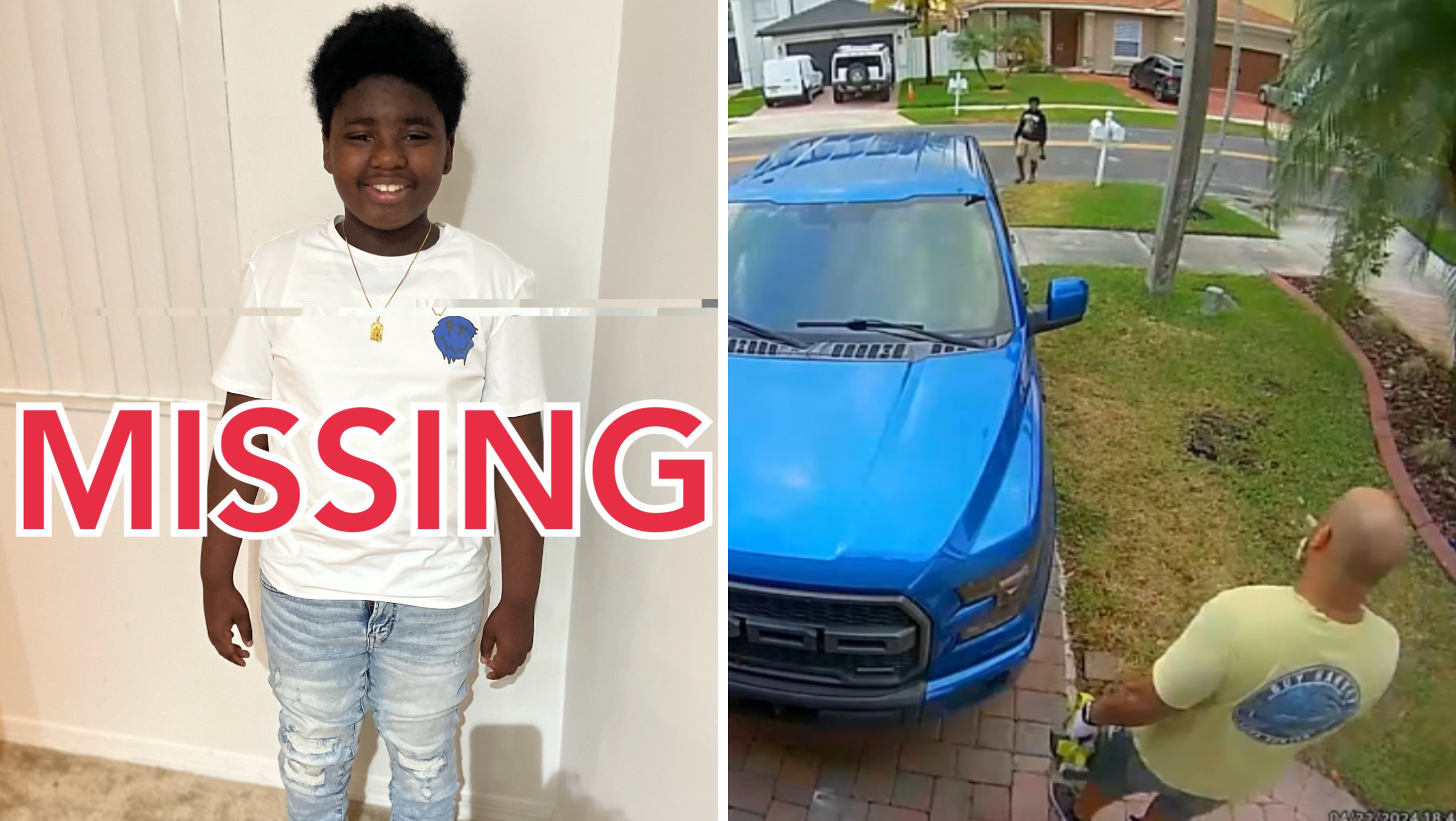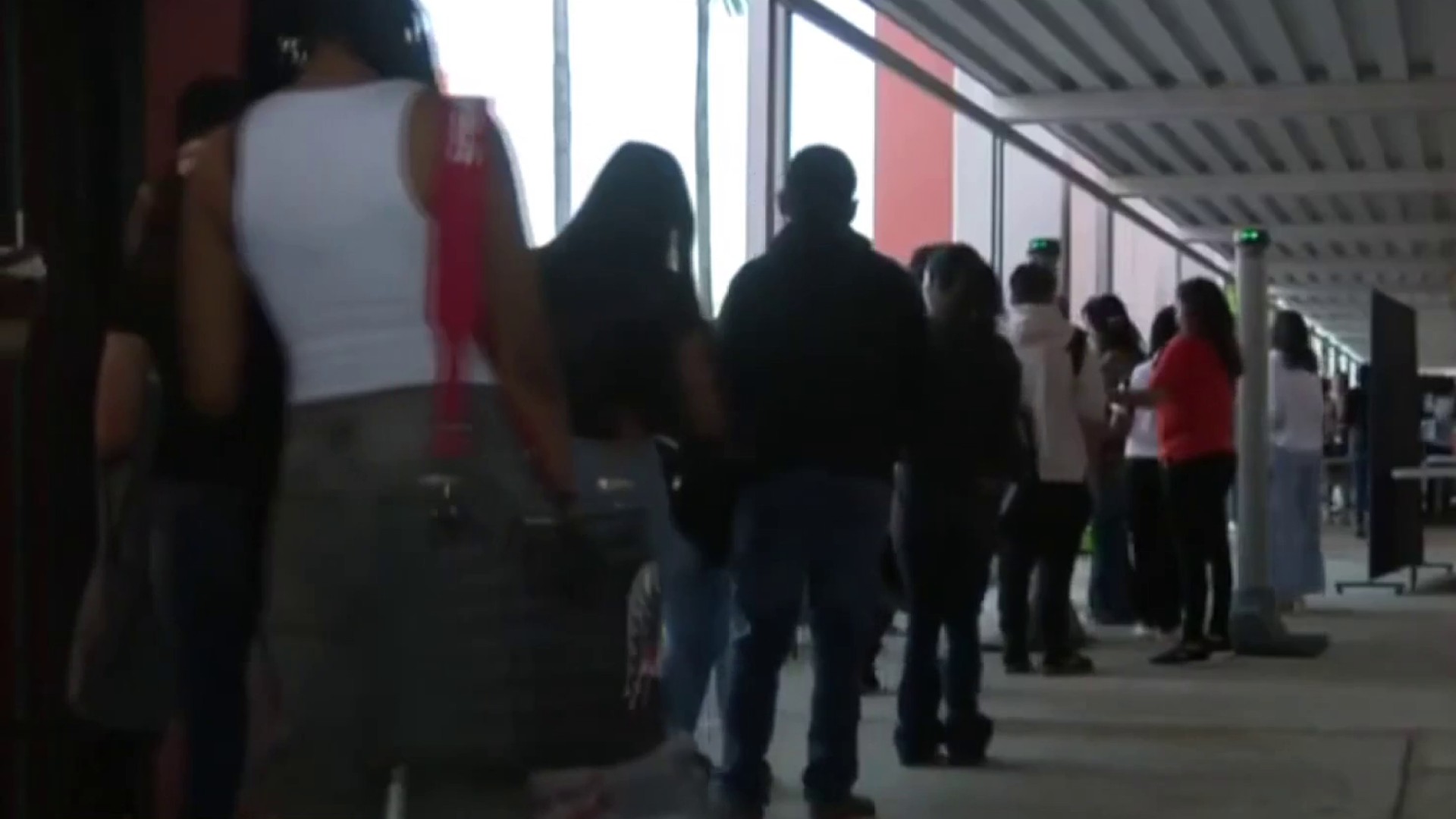A Miami man who spent more than 30 years in prison after he was wrongfully convicted in a 1990 murder case is speaking out a day after his emotional release from prison.
Thomas Raynard James was just 23 when he was arrested for the Jan. 17, 1990 killing of Francis McKinnon in Coral Gables.
The now 55-year-old was released Wednesday after more than three decades in prison, after a Miami-Dade judge vacated his conviction and life sentence in the McKinnon killing.
NBC 6 caught up with James at his mother's home on Thursday, where he was asked how it felt to wake up a free man.
Get South Florida local news, weather forecasts and entertainment stories to your inbox. Sign up for NBC South Florida newsletters.
"It was beautiful, it was wonderful. I got to say, one of the greatest feelings in the world right now," he said.
He was also asked if he has post-traumatic stress disorder after so much time behind bars.
"I think anyone who’s been incarcerated that long has to have it," James said.
Local
James admitted he had been dealing drugs and had a gun to protect himself, but said he's not a murderer.
He added that he had initially been powerless to fight the conviction.
"With force like a hammer you can make a square peg fit in a round hole. And basically that’s what they did, they had the power," he said. "It’s definitely scary and it’s extremely dangerous.”
The Miami-Dade State Attorney's Office Justice Project began looking into James' case a year ago and concluded he was innocent in the killing.
His conviction was made largely on the testimony of an eyewitness who later recanted her statement. James' attorney said there was no DNA or other physical evidence, and no murder weapon ever found.
In a 90-page filing, the state attorney's office said name confusion may have ultimately led to the conviction.
"What appears to be a chance coincidence that the defendant, Thomas Raynard James, had the same name as a suspect named by witnesses and anonymous tipsters as 'Thomas James' or 'Tommy James,' led to the defendant's photograph being included in a lineup, and set in motion a mistaken identification," the filing said.
James said after the man he shared a name with had been arrested the day before the killing, police focused on him.
“They was probably looking for the other Thomas James but they realized that he was incarcerated the day before, so to make life easy let’s just find anther Thomas James, there is one right here,” he said.
One possible suspect in McKinnon's killing died in 2020, but investigators are still looking into the homicide.
James said he believes the wrongful conviction could have been prevented.
"A lot of this could have easily been prevented if the police simply came and questioned me, interrogated me," he said Thursday. "I was arrested in a courtroom, I was re-fingerprinted, charged with this crime and to this day I have yet to speak to a police or a homicide detective, to this day."
He was also asked what could be done to prevent what happened to him from happening to someone else.
"The answer to that is fairly simple. If the people in society, meaning people who sit on juries, make the state attorney uphold their end of the bargain, by proving beyond a reasonable doubt that person committed that crime and they learn that the jury stop accepting anything, those people will really become objective verses subjective, all the predispositions are done," he said. "Once you start getting all these 'not guilty' verdicts then that sends a message to the state."
James said it's up to juries and prosecutors to be thorough.
"If you come to trial, when you bring a case in front of us and you haven’t crossed all your T's and dotted all your I's, you just wasted a lot of money," he said. "Because we feel that it’s better that 99 guilty people go free than one innocent person suffer and when the people that function as jurors start taking that approach it will compel everybody to play fair."



